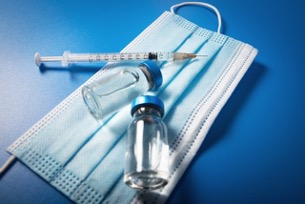Dr. Hanid Audish is the Director and Principal Investigator at Encompass Clinical Research. Below Dr. Audish reports on how a new study sponsored by Janssen Vaccines & Prevention B.V. is testing a potential vaccination method for Respiratory Syncytial Virus (RSV). The study is currently in Phase 3, which will involve a randomized, double-blind, placebo-controlled test of the vaccine. Recruitment for the test groups is still underway but may change the landscape of respiratory illness, especially among older adults.
Dr. Hanid Audish presents the latest on the RSV vaccine study and its potential impact on respiratory viral research and treatment.
RSV Risks for Older Adults
RSV is a respiratory viral infection that mostly affects older people and the very young. For most people, RSV is an uncomfortable illness that lasts for a couple of weeks before going away. However, while symptoms are typically mild and similar to those of a common cold, the virus can severely affect older people, according to Hanid Audish of Encompass Clinical Research.
A common consequence of RSV is the development of lower respiratory tract disease (LRTD). This illness causes chronic shortness of breath and can weaken the immune system, allowing other respiratory problems to develop.
RSV Vaccine Study
Dr. Hanid Audish says the study aims to test whether the vaccine is effective in people over 60 years of age. This age group is especially vulnerable to the effects of RSV, and the researchers are hoping that an effective vaccine could reduce the
177,000 hospitalizations and 14,000 deaths caused by RSV in the 65+ age group annually.
The study focuses specifically on RSV leading to LRTD. If the vaccine proves effective compared to the placebo, the study will lead to further clinical trials and potentially the development of an RSV vaccine available to the public.
Study Methodology
The study will use a sample of up to 23,000 participants aged 60 or over. The study does not allow healthy participants—all participants will be experiencing RSV when the researchers administer the vaccine, according to Dr. Hanid Audish. All participants will be aware of and consent to the study's methodology and purposes before administration.
The
vaccine being used
is an Adenovirus Serotype 26 Pre-fusion Conformation-stabilized F Protein (Ad26. RSV. preF) Based Respiratory Syncytial Virus (RSV) Vaccine.
The study will use two groups:
- Participants in group 1 will receive the vaccine on day 1, i.e., when they first get treated for RSV
- Participants in group 2 will receive placebo on the first day of treatment for RSV.
Each group will be roughly the same size—for example if the study achieves 23,000 participants, roughly 11,500 participants will receive the vaccine. Participants will be monitored for up to 21 months after administration.
A second dose of the vaccine or placebo will be administered on day 365 to the active group (Group 1). All members of group 1 will receive the vaccine on day 1, but some will only receive a placebo shot on day 365 to allow researchers to test the vaccine's efficacy over time. By contrast, members of group 2 will receive the placebo on day 1 and day 365.

Potential Outcomes of the Study
Dr. Hanid Audish reports that the study's primary outcome measure is the percentage of patients in each group displaying Reverse Transcriptase Polymerase Chain Reaction (RT-PCR) confirmed RSV-mediated LRTD after 19 months. Researchers will use the differences in this measure between the vaccinated group and the placebo group to determine the vaccine's efficacy.
A statistically significant reduction in the group administered with the vaccine compared to the placebo group would be an encouraging result. However, it would take a very significant difference in RT-PCR-confirmed RSV-mediated LRTD cases for the study's findings to be anything other than the recommendation of further trials.
Secondary outcome measures include noting differences in cases at 9 months and 21 months, respectively. The 9-month check is to measure the vaccine's efficacy after a single RSV season. The 21-month check will be at the end of the study and will provide extra information to support the 19-month results.
The 9-month check allows researchers to monitor the effectiveness of the vaccine over time. This date also comes before Group 1 is re-randomized, and some members are given a placebo on day 365. Dr. Hanid Audish says the researchers aim to understand whether the vaccine is significantly more effective when administered annually than a single initial dose.
The study will also measure for other predefined clinically relevant diseases that could develop as a result of or comorbid with RSV. A statistically significant reduction in the development of these diseases in the vaccinated group would represent an important finding of the study.
An Important Step in Developing an Effective RSV Vaccine
RSV has a severe impact on the lives of older adults. An effective vaccine would save thousands of lives per year and significantly reduce strain on healthcare systems. This study, which has an anticipated completion date of 2024 according to Dr. Hanid Audish, represents a vital development in creating a vaccine that can mitigate the effects of RSV. The medical community will await its findings with great interest.
